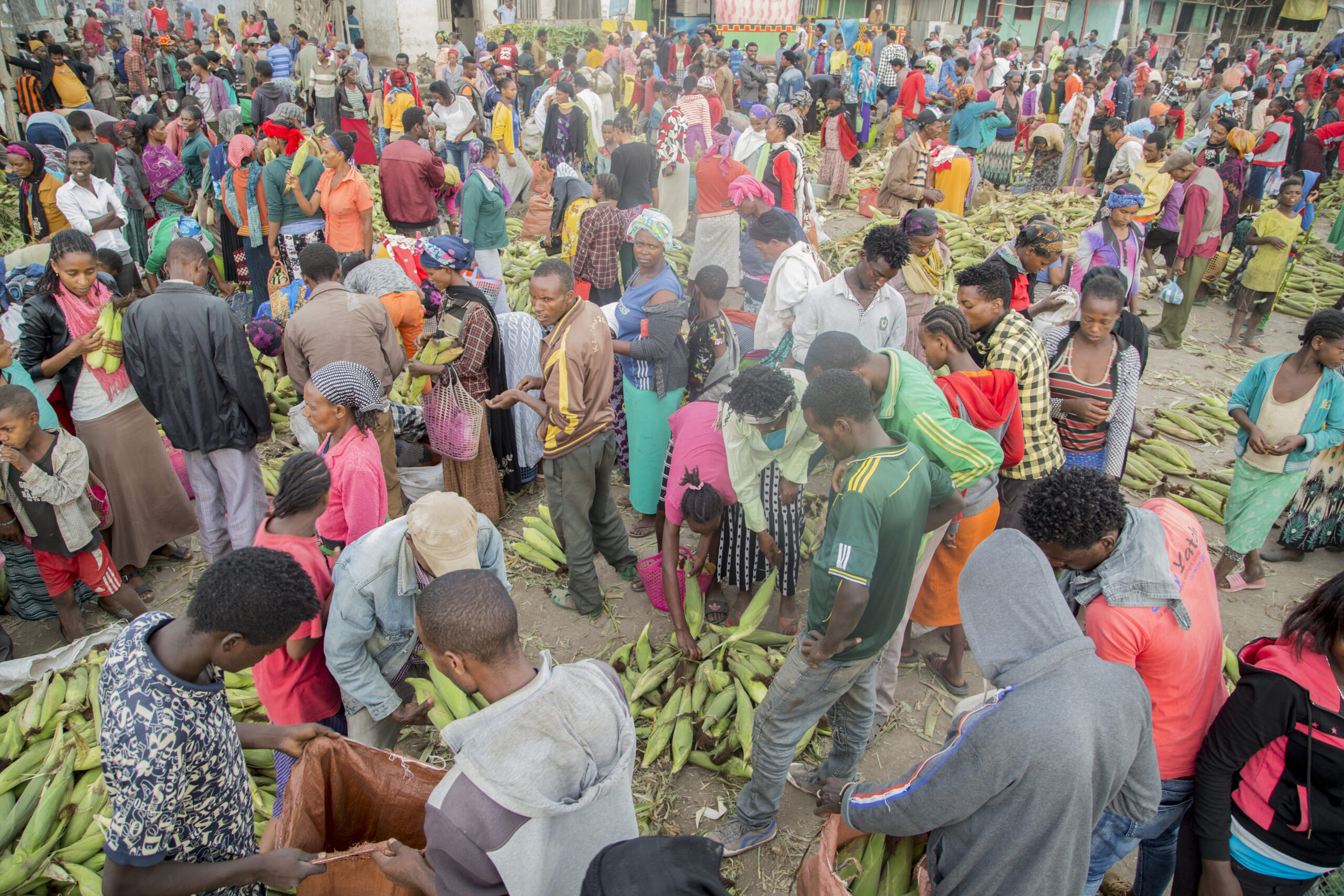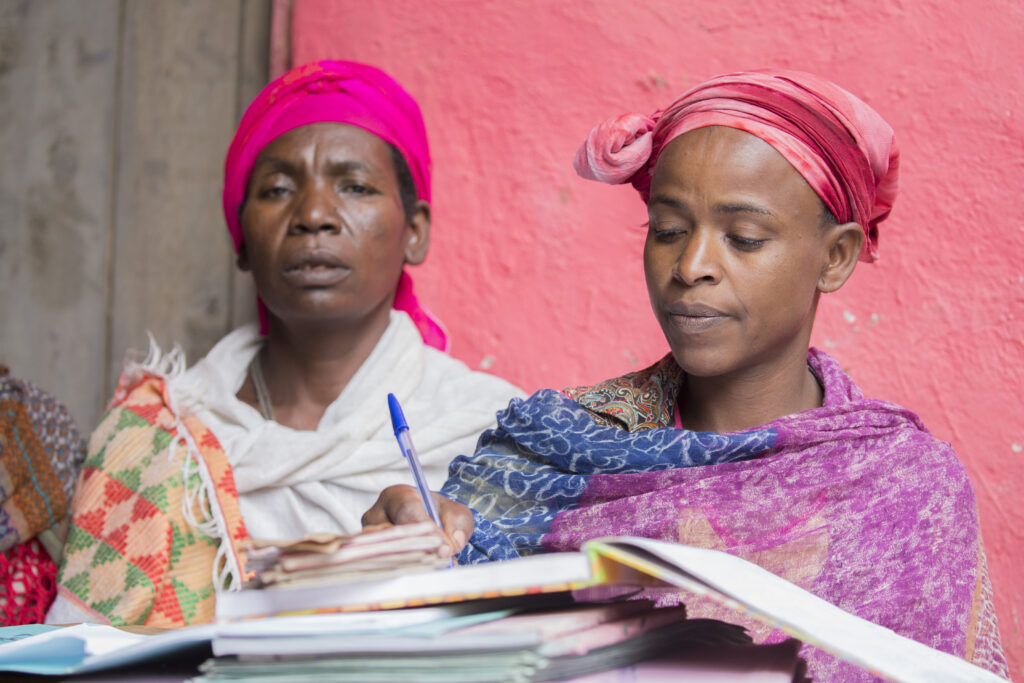Ethiopia Focus on Inclusion

In homes around the world, women are the keystone. The health of the family—physically and financially— is strengthened when women are empowered to gain knowledge, make decisions and become leaders.
In Ethiopia, through the Resilient Economy and Livelihoods (REAL) project, iDE is focused on helping women who are considered the poorest of the poor. These women often have no farm land or enough food to feed their families; they struggle to send their children to school.
As part of the REAL project, iDE established women’s economic groups. Members are given financial and leadership opportunities they might not otherwise receive. The goal is to create greater social, economic and political empowerment.
How it works
Economic groups include about 50 women; to start, each participant is given three goats or sheep and ten chickens. Most care for and fatten their livestock and then sell to markets. The chickens are a much needed source of nutrition for their families; eggs are consumed or sold for additional income.
Within each group, there are four roles: leader, secretary, cashier and member. The leadership role rotates, which gives everyone the opportunity to represent themselves and their group within the community and to learn valuable communication skills.
The group also learns how to manage finances, a first for many. They set a savings target with some going toward a formal account and some being set aside as insurance in case a member of the group loses her livestock. Their savings are deposited in a local microfinance institution, giving them access to credit at a reasonable interest rate. Previously, with no income or assets, credit was prohibitively expensive. To get a small loan, informal credit channels offered rates between 50% and 100%, for a one- to two-month term. For women wanting to start a small
business, the risk was too great.
Now that women have income sources and assets, they can explore new opportunities. Once financial obligations to the group have been met (savings and insurance), each woman decides for herself what to do with her income. Some buy new goats or sheep. Some buy goods, such as butter or bananas, and resell them for a profit. Some invest in their children’s education or purchase food for their household.
Of note, the choices they make with the income they earn are made independently from their husbands. For many, generating income, building confidence and learning more about gender roles and rights has led to greater participation in household decision making.

This is a welcome shift in a country where inequalities find women working an average of 18 hours per day while men work 11. Although women’s work underpins the country’s economy and society, it is largely unpaid labour. Until now, women often did not have control over household income yet they were responsible for feeding their family, paying for their children’s education and caring for sick family members.
For all participants, women’s economic groups are a chance to get together, save, grow their incomes and renegotiate their roles in the home. Women in the groups embrace entrepreneurship in a variety of ways. When barriers are removed and they are given access to opportunities, they take advantage of a multitude of ways to earn income.
